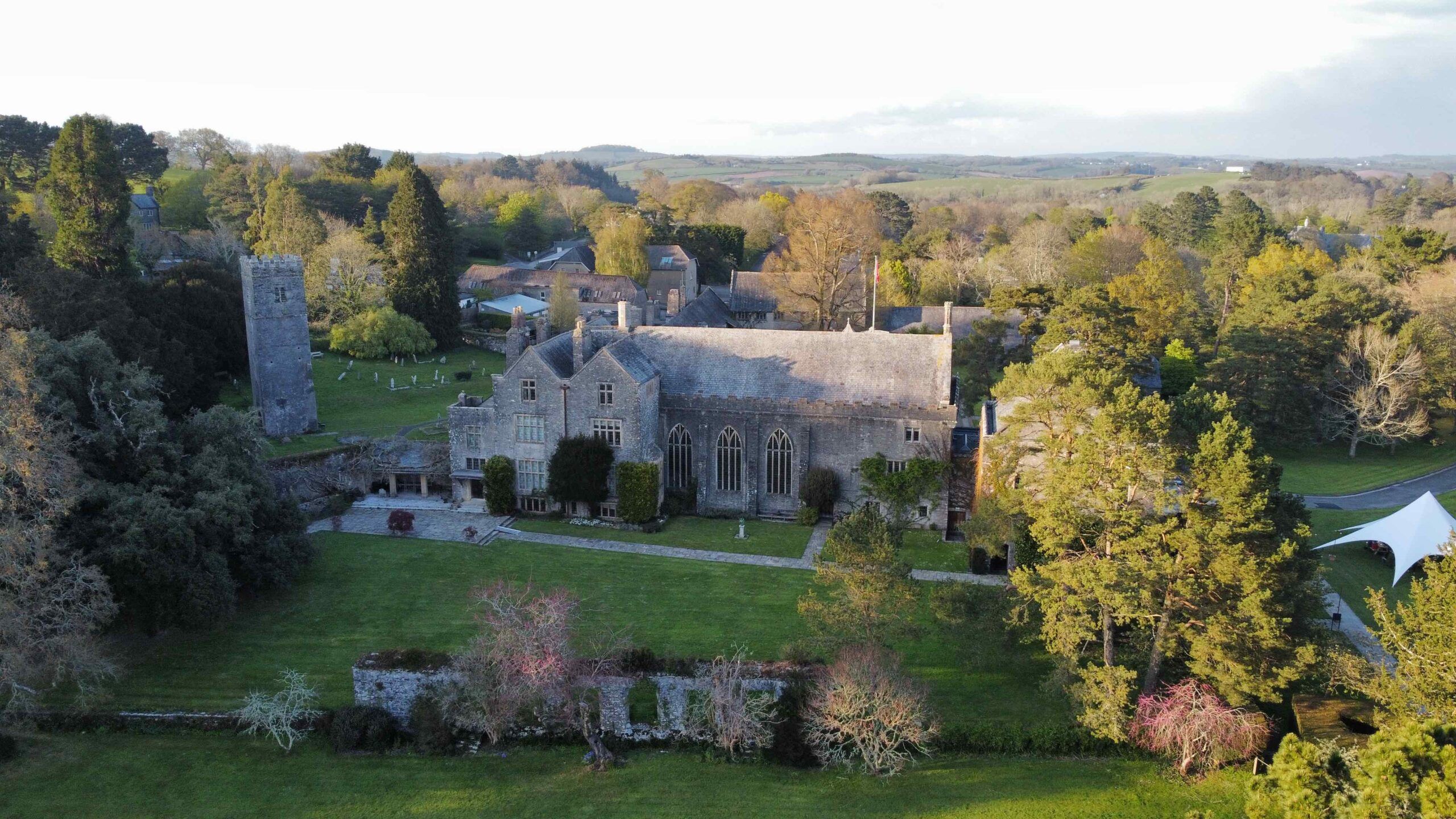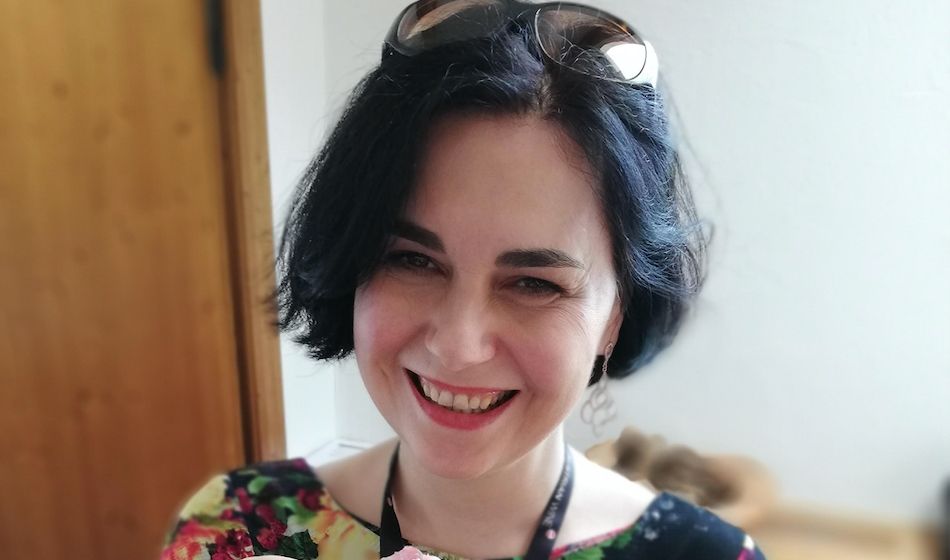The wine education programme at the Dartington Trust starts later this weekend and hopes to provide a new dedicated centre for viticulture and wine training.
Before we go into the wine courses can you give us some background to the Dartington Trust and what it does?
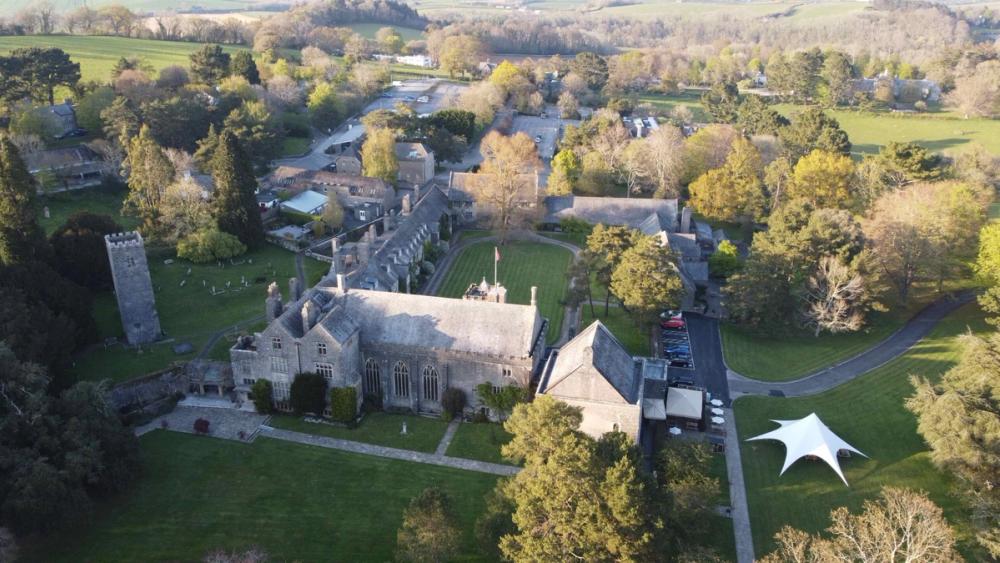
The Dartington Trust offers a wide range of cultural courses at its estate in Totnes in Devon
The Dartington Estate has been a centre for original thinking since 1925, when it was bought by Dorothy and Leonard Elmhirst, and the land was put into use to research innovative agricultural techniques which aimed to improve the lives of subsistence farmers in India and other parts of the developing world.
Over the years, the Estate has hosted a world renowned Arts School, The Schumacher College and the famous Summer Music School. Bernard Leach made pottery here, Dartington Glass was founded nearby and important progressive political thinking was incubated on the Estate – from the founding principles of the NHS to the formation of the Arts Council.
Today, the Trust oversees the activities on the Estate, which nowadays is comprised of Schumacher College, Dartington Arts School, Research in Practice, and Dartington School for Social Entrepreneurs
Today, Dartington’s principles are based around being:
- a social-enterprise hub for like-minded organisations and charities
- a place for nature with range of conservation, agroforestry and sustainable food-growing projects.
- a creative community with a year-round programme of art and craft short courses, theatre, music and dance events as well as a wide selection of films at the independent Barn Cinema.
- an award-winning destination with woodland walks, riverside trails, cafés, and restaurants and family-friendly activities.
Has it been involved in wine before and if not how did this new venture come about?
Wine has been enthusiastically consumed at Dartington for many years, but there has been no formal wine education activity at Dartington – until now.
What are the main objectives for running the wine courses?
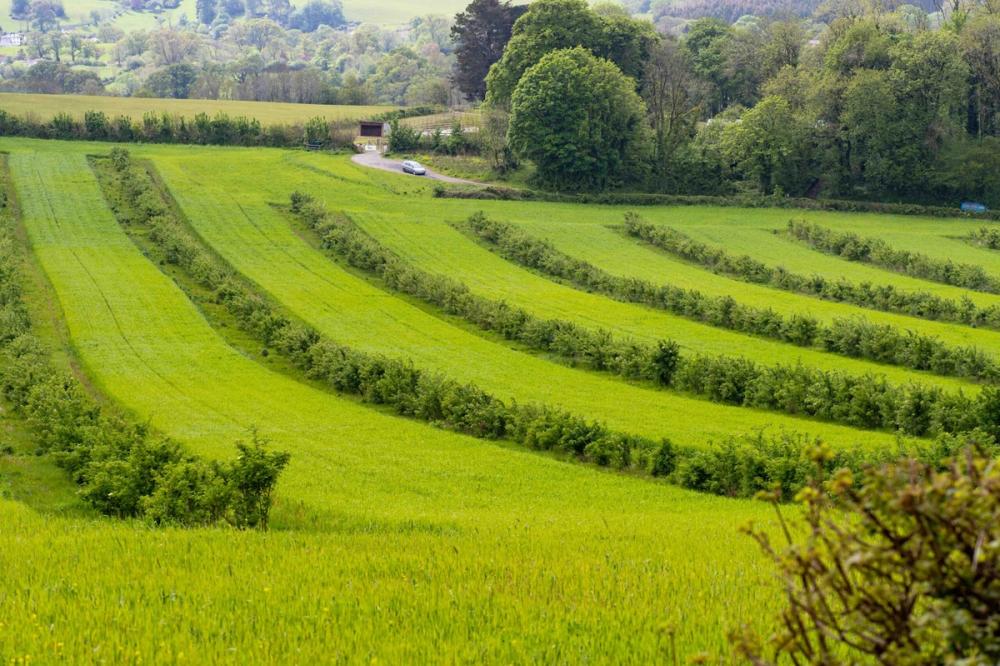
Rengerative agriculture is already a key feature in how the Dartington Estate is managed and will be a key part of the wine education course
Wine plays such a role in human history, and has links with music, poetry, philosophy, social history, and the human condition that it seems a natural extension to the arts, ecology and land-use focus of the education available at Dartington.
We want our students to have fun learning about wine in a different way to a formal trade qualification like the WSET
Can you give us an idea of the kind of content you are going to be covering and why?
Over the next couple of years, we aim to build courses and events for everyone from total beginners, through wine appreciators who want to know more, to knowledgeable wine lovers who wish to attend a winemaker talk or a fine wine dinner. We are also planning to build on Dartington’s existing expertise in Regenerative Agriculture, and the extend the program available on the agricultural courses to include content on vines and vineyards.
What sort of level of wine and viticultural knowledge will you need to have to get the most out of the viticulture course?
We are going back to first principles and asking questions about soil that will be of interest to anyone who has ever tried to grow anything, so you will not need any significant viticultural knowledge to get a lot out of our viticulture week.
Who are the viticulture courses aimed at?
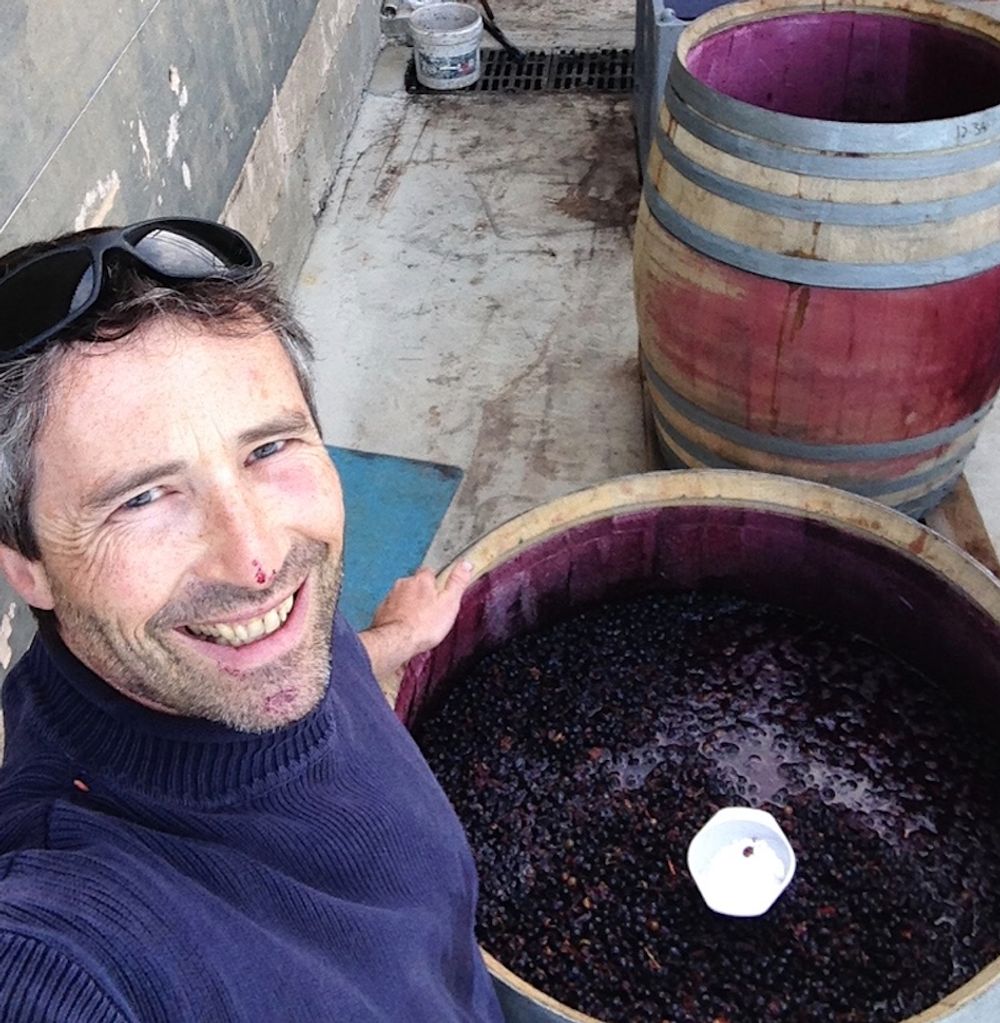
Justin Howard-Sneyd MW is looking forward to getting back to teaching and sharing his wide experience as a former supermarket wine buyer turned winemaker
There is a huge groundswell of interest in the principles of regenerative agriculture, and there are very few places that you can go to learn about its application to vineyards. So we have created a course to appeal to vineyard owners, people planning to, or dreaming of planting a vineyard, and people who work or wish to work in the viticultural sector who want a quick overview of the options available to them to move away from straight ‘conventional’ viticulture.
What do you hope the course will equip the students to go on and do in their work?
Our vision for wine at Dartington is to become a centre for expertise in regenerative farming methods, and to help spread knowledge about how to farm vines in a more planet-friendly way. A significant part of the earth’s surface is covered in vines, and we need to do our bit in making a positive contribution to our planetary health. We want to accelerate this learning by bringing people together to share knowledge and spread best practice.
How have you devised the the viticulture course?
We are working with some nearby vineyards including close neighbours Sandridge Barton Wine Estate (home of Sharpham Wine), and are working with them to apply some regenerative techniques to their farming practices. Students will be spending a long time looking at soil, and learning how to assess what healthy soil looks like. We’ll be working with other vineyards already using sustainable, organic and biodynamic techniques, and will visit and learn what works for them, and how these farming philosophies work in practice.
You have built a team of experts to help deliver the viticulture course – who is involved and why?
As well as Dartington’s in house soil experts, we will be working with a wide range of great people who all have important things to tell us about running a sustainable business. This is not just about soil and farming, it encompasses the business philosophy, how to build local food networks, and how to tap into the circular economy.
Chris Foss will be on hand to tell us about sustainability in a GB context, and we’ll be visiting Limeburn Hill where Robin Snowdon – a leading light in the Biodynamic Association will show us how he is applying biodynamic principles in his own vineyard.
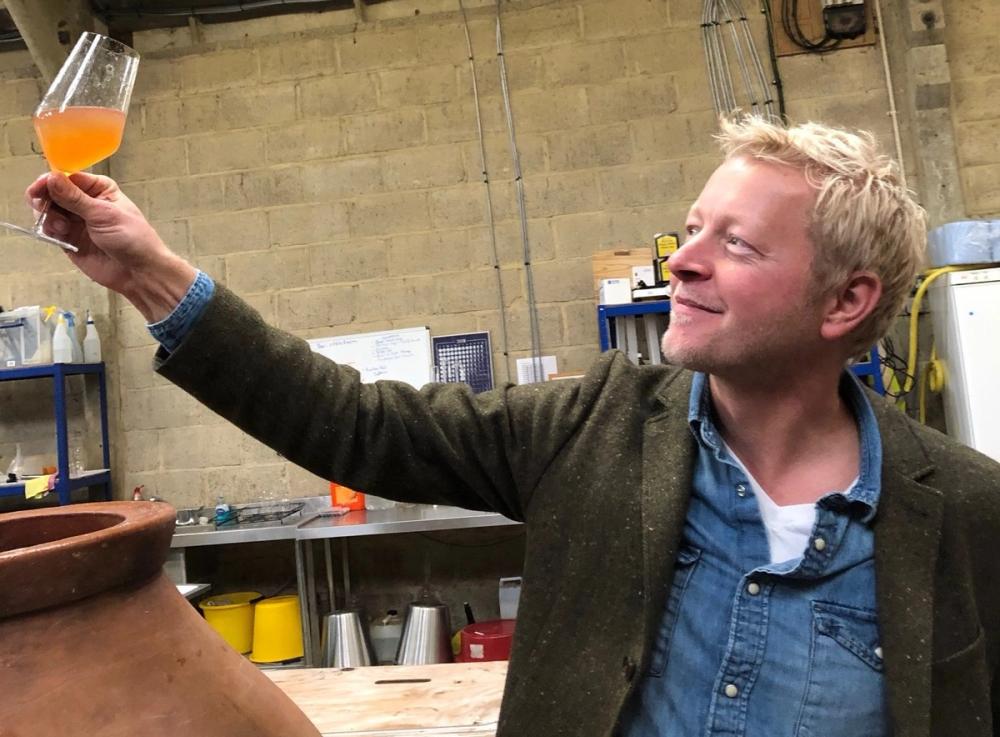
Ben Walgate will be sharing his story of how he has brought natural winemaking and qvevris to England and his Tillingham winery
We’ll also benefit from Ben Walgate’s experience as he tells us about the story of Tillingham, and how they are building a community of fans who support them in many ways, and Nigel Greening of Felton Road will share some thoughts about how to build a distribution network, and how to create positive feedback loops that help to foster a thriving business.
And I’ll be there for the whole week, as I don’t want to miss a moment of what should be a fascinating learning journey, for me, as well as for everyone joining us.
Then there is a consumer course – what is the concept behind that?
There are so many great places where you can study for the WSET qualifications, so we wanted to create something a little different. Somewhere that would take you from zero to wine ninja in an action-packed weekend.
Again what sort of person is this aimed at?
Anyone keen to learn about wine, but who prefers to learn by getting their hands dirty, through physical demonstrations, rather than learning facts from books.
Can you explain the head, heart and hands approach to wine training?
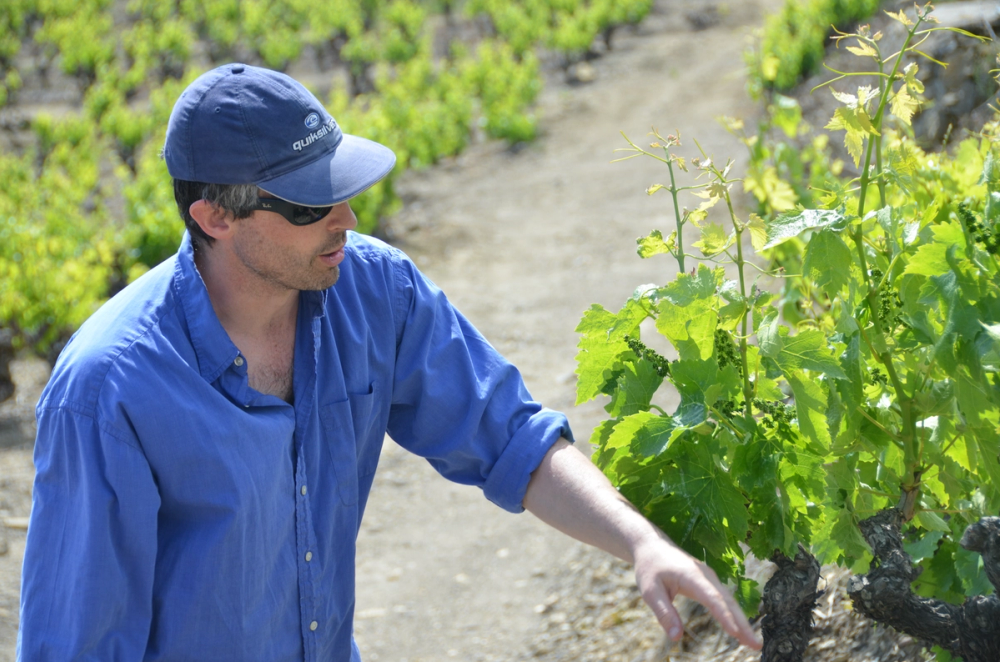
Howard Sneyd MW is a great believer in getting people out into vineyards and into wineries for them to see how grapes grow, mature and are then handled through the winemaking process
‘Head, hands and heart’ has become a mantra of a certain form of teaching that takes the emphasis away from the ‘head’ – which is the focus of most traditional teaching, and places equal weight on engaging the heart and the hands – so by physically interacting wine grapes, juice, yeast and wine, we will learn in an experiential way that will engage the body and the senses, and thereby the emotions.
What do you hope they will take away from doing the courses?
We have a packed 48 hours of learning that should mean that our students leave with their eyes shining, and with plenty of exciting things to share with their friends and family. Most importantly, we want them to have fun, and to feel more confident around wine.
Are you looking forward to going back to your teaching skills rather than buying and winemaking?
I’ve always loved teaching, and I am really looking forward to spending an intensive weekend with a small group of students sharing some of the joy and the fun of wine.
What else does your role as director of wine involve?
Dartington is already a marvellous place to visit, and learn, and we are building more reasons to spend time there, whether studying on a course, or just enjoying the cultural events.
My job is to weave wine into the fabric of life at Dartington so that you can drink amazing wine in the restaurants, share profound wine and culture experiences, and go home with delicious bottles sourced from great producers. We’ve made a start, but there’s more to be done!
- Dartington’s first wine course takes place between July 2 and 4 and is called The Crush Course. There are still a few places left. More details here.
- The first main viticulture course takes place between August 23 and August 27. Full details here.
- You can find out more about the Dartington Trust here.
